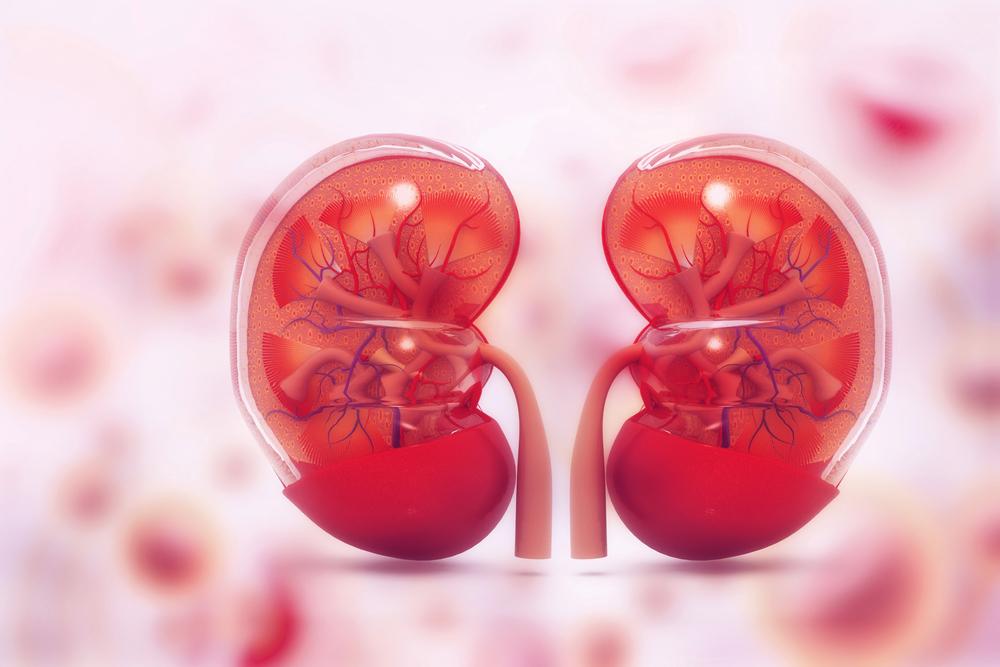Despite the fact that patients have to take medication to suppress the immune system following a kidney transplant, rejection often remains a problem. To identify rejection, doctors will take a biopsy, i.e. they will use a needle to extract a tissue sample from the transplanted kidney and study it under a microscope. This procedure is often uncomfortable for patients. Furthermore, signs of rejection are frequently discovered too late as a result of which appropriate treatment may no longer be possible. Kidney transplant patients at UZ Leuven have to undergo a kidney biopsy 3 months, 1 year and 2 years after the transplant. However, the biopsy only provides information on signs of rejection in the kidney at that point in time, whereas rejection may occur at any time. In 10 to 20% of patients, rejection is not detected, resulting in them having to undergo kidney dialysis again or needing another transplant.
Milestone in kidney transplant research
Research into kidney transplantation has, therefore, focused for several years on finding biomarkers to trace signs of rejection in the blood. A biomarker of this kind has now been identified during a European study* involving 4 university hospitals (Leuven, Paris, Hannover and Limoges) and directed by Leuven-based nephrologists.
It is the first time that researchers have also found a biomarker for rejection by antibodies following a kidney transplant. Recently several biomarkers were identified in the blood for T cell-mediated rejection, a common type of rejection. These will now be developed further for clinical use. But no biomarker was in sight yet for rejection caused by antibodies. T cell-mediated rejection can now be treated quite successfully. There are fewer treatment options, however, for rejection by antibodies.
Prof. dr. Maarten Naesens, nephrologist at UZ Leuven and lead researcher for the study: “Rejection by HLA antibodies often has serious consequences. Using the traditional method to monitor the progress of a kidney transplant, we often do not detect rejection until it has become chronic and irreversible. Using this biomarker we can identify rejection much earlier using a simple blood test. Because the test is less invasive, we will be able to test more often than with current biopsies and intervene much earlier on.
Because the test is less invasive, we will be able to test more often than with current biopsies.Prof. dr. Maarten Naesens - nephrologist
Tested in clinical practice
During the initial phase, the European study* investigated on the basis of genome wide analysis which RNA molecules were different in 117 patients with and without signs of rejection following a kidney transplant. During the second phase, involving a random group of 183 patients, these different molecules were processed in a mathematical model. The eventual biomarker is based on the measurement of just 8 RNA molecules using an RT-PCR technique. During the third phase the biomarker was validated in 387 patients in 4 European academic hospitals.
Dr. Elisabet Van Loon of the Nephrology and Kidney Transplant research group at KU Leuven: “In addition to the development of the biomarker, this third phase was extremely significant. Researchers are often pleased with a new discovery but in many cases they are not able to test the results in independent clinical studies. International cooperation has enabled us to validate this biomarker in a large group of patients, as part of our daily clinical practice. It instils a high level of confidence in the clinical added value the new biomarker can offer.”
The researchers will now consult medical diagnostics companies that will be able to develop and standardise the test. Professor Naesens: “In principle our test for rejection by antibodies has been sufficiently validated to be commercialised. That is a necessary next step to be able to offer the test to our patients. The test will prevent patients who do not show signs of rejection by antibodies from having to undergo a biopsy. The biomarker in the blood will also help to identify rejection earlier on and to develop improved medication against rejection by antibodies.”

